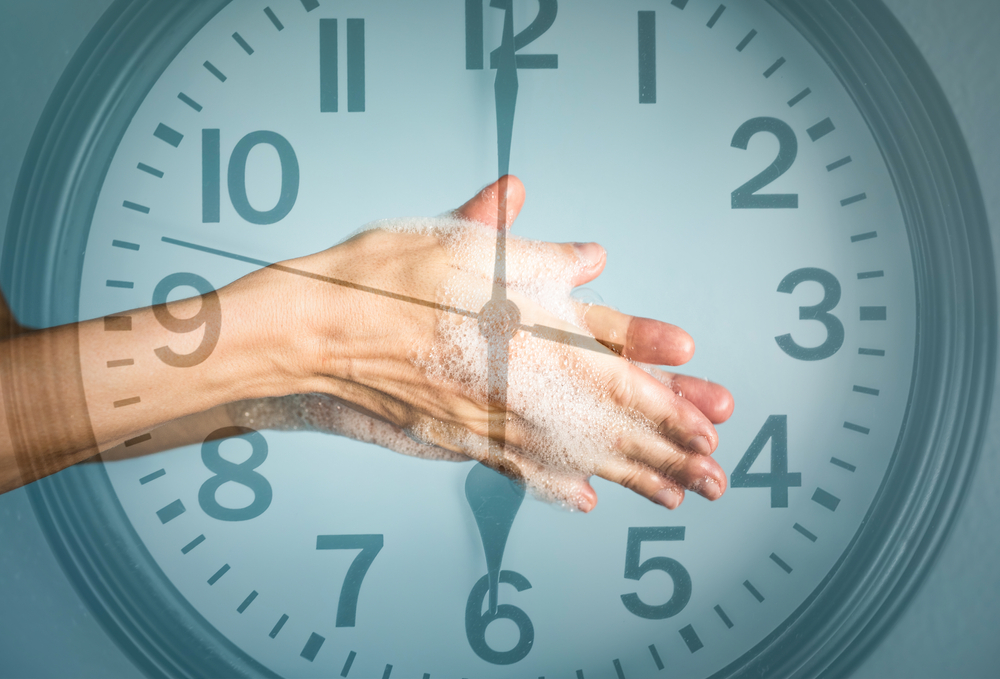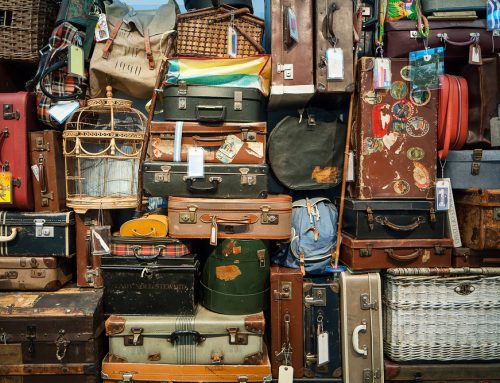
What’s Up With 20 Seconds to Wash Hands?
Since we can’t see the germs on our hands with the naked eye, we can’t observe them being scrubbed away when handwashing with soap and water. For that reason, there isn’t a clear visual link between time spent washing hands, and the number of germs washed away once we’ve finished. In this post, we take a look at the importance of washing your hands for at least 20 seconds and the research that explains why 20 is the magic number.
How Hand Soap Works
The Centers for Disease Control and Prevention explains that soap molecules work by trapping and removing germs and other materials from your hands. Adding water to the mix allows scrubbing soap to build up a powerful lather, forming pockets of air called “micelles” that are better able to trap and remove germs and other potentially harmful materials.
These soap molecules then function similarly to a magnet, attracting and latching onto the oils on our hands, the outer membranes of germs. They attach so strongly to these materials that they can even rip them apart as we scrub.
For these reasons, water alone is not as effective for handwashing because it doesn’t have the chemical capacity to remove harmful substances as effectively.
Why Time Spent Hand Washing with Soap Matters
Okay. We now understand why it makes sense that hand washing with soap won’t be as effective if we don’t take the time to scrub and build up a lather on our hands. Let us now dive into how physics also supports the 20-second recommendation.
Note that our hands are not flat surfaces. They have pores and ridges that can trap harmful particles. Germs can settle at the “bottom of a valley” on our hands. Soap lathers will only reach those areas once we are several seconds into handwashing.
For that reason, experts recommend thinking of handwashing as working to get a stain out of clothes. A quick rinse can sometimes wash germs immediately on the surface. Still, it takes more intentional scrubbing with soap and water before the deeper-down particles can be reached and removed.
Scientific studies on time spent washing hands support this idea. One study compared handwashing results with soap and without soap under various combinations of time duration (5 and 20 seconds) and hand dirtiness (the amount of ground beef debris on hands).
These were the results:
- 5 seconds with no hand soap vs. 20 seconds with no hand soap (both with no debris on hands): Researchers found that when hands were free of debris, there wasn’t a significant difference between water rinses of five and 20 seconds.
- 5 seconds with no hand soap vs. 20 seconds with no hand soap (both with debris on hands): Researchers found that even with debris on hands, there wasn’t a significant difference between water rinses of five and 20 seconds.
- 20 seconds with no hand soap vs. 20 seconds with hand soap (both with debris on hands): This variation demonstrated the most significant reduction in debris with 20 seconds of washing with soap versus 20 seconds without soap.
- 5 seconds with no hand soap vs. 20 seconds with hand soap (both with debris on hands): Researchers found that, on average, washing hands for 20 seconds was able to successfully remove 99.5% of bacteria, which was dramatically higher than washing hands for only five seconds.
The overall evidence makes clear that 20 seconds is the amount of time necessary to remove the ideal number of germs and chemicals from your hands. Furthermore, washing for a shorter amount of time is not likely to remove nearly that amount of harmful materials.
Elements of Proper Handwashing with Soap
Not only is it essential to wash your hands for the full 20 seconds each time, but it’s also important to know when to wash your hands. The CDC explains that handwashing with soap is vital before and after meals, when cleaning a wound, and when caring for an ill loved one. It’s also essential to wash hands after encountering pet food or excrement.
Additionally, touching garbage, sneezing and coughing into our hands, and using the toilet are all likely to result in germs collecting on our hands, so we should wash our hands immediately afterward.
Time vs. Hand Soap vs. Sanitizer vs. Water
When handwashing with soap isn’t an option, health experts make clear that an alcohol-based hand sanitizer is your next best option. Rinsing your hands with water, even for 20 seconds, simply isn’t good enough, as demonstrated by the research.
For more detailed instructions on handwashing, you can check out this great resource, which provides a more in-depth explanation of how to scrub your palms and fingers properly. It also includes a video tutorial.




